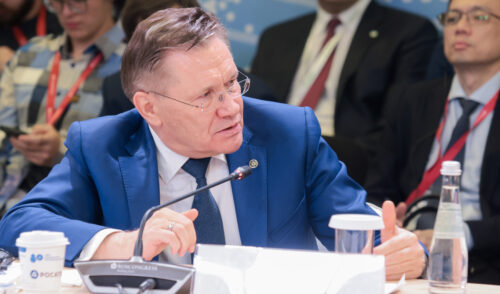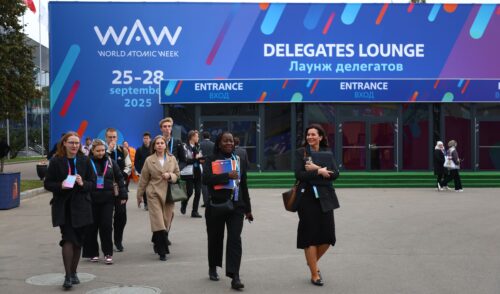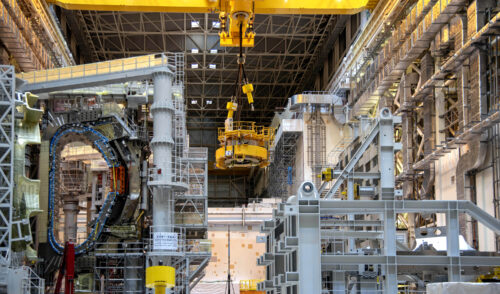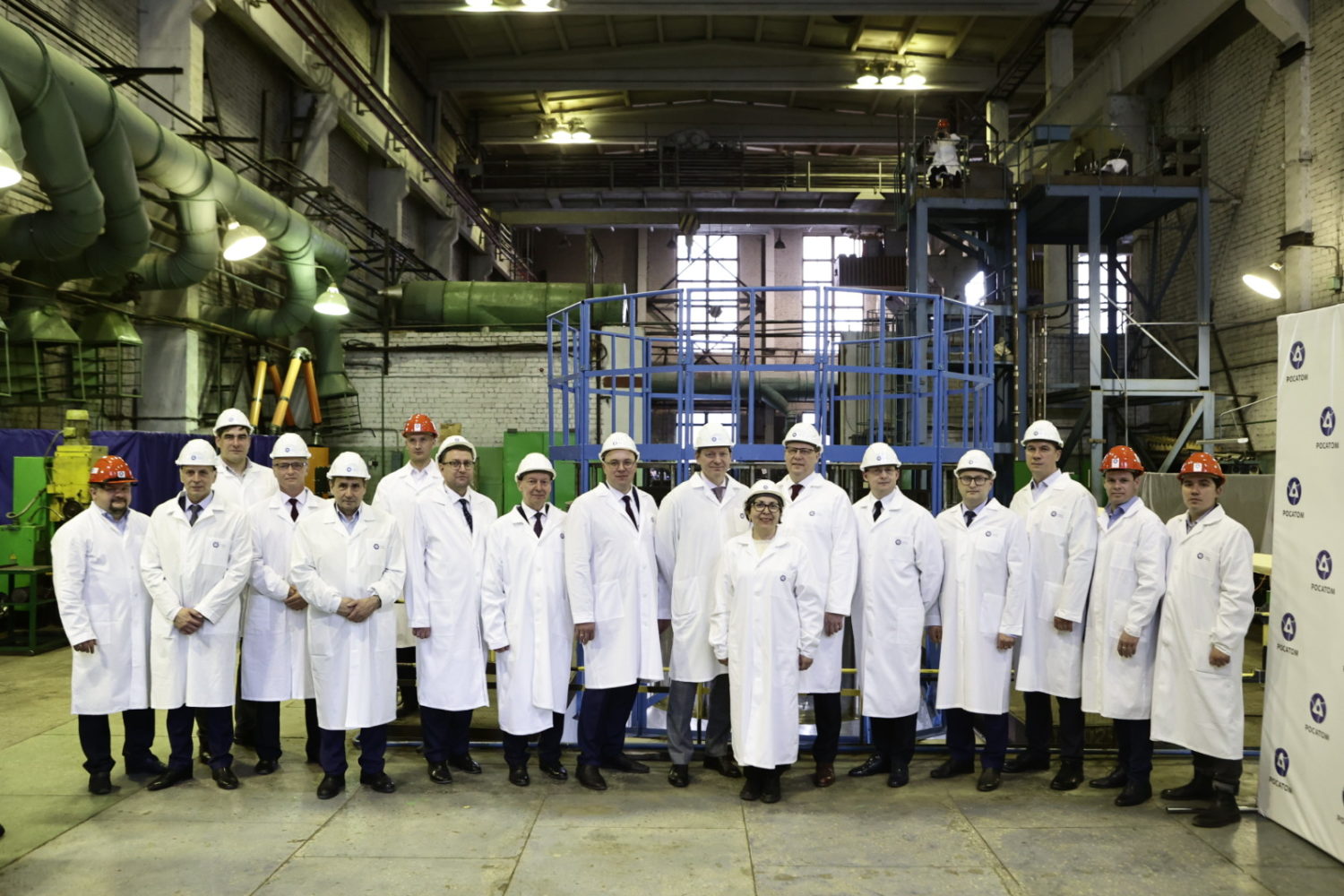
Bolivia Awaiting Reactor Delivery
back to contentsBolivia’s representatives took part in the final phase of the trial-fit assembly of the first research reactor for the Bolivian Nuclear Research and Technology Center (NRTC). The reactor will soon be shipped to Bolivia for installation.
Ambassador of Bolivia to the Russian Federation María Luisa Ramos Urzagaste and representatives of Rosatom and Ulyanovsk authorities took part in the ceremony. Jerges Mercado Suárez, President of the Chamber of Deputies of the Plurinational Legislative Assembly of Bolivia, joined the event via video link.
During the trial fit process, all the key components of the reactor were test-assembled, with the reflector, dummy fuel assemblies, control and protection systems and experimental channels installed to preemptively identify and eliminate any problems should they exist.
“The completion of the trial fit assembly of the research reactor is a major milestone for the Bolivian project, so the customer always takes part in it to check the fabrication quality and examine technical documents. This procedure assures that the long-lead equipment meets design specifications and that all parts and components fit together,” said Evgeny Pakermanov, President of Rusatom Overseas.
This 200 kW pool-type pressurized water research reactor was developed at the Research Institute of Atomic Reactors (RIAR). With a service life of 50 years, the reactor will be installed in the Nuclear Research and Technology Center (NRTC), which is being built in the Bolivian city of El Alto at 4,000 meters above the sea level. It will produce radioisotopes to conduct research in agriculture, environment and hydrogeology. Besides, its functionality offers the possibility of training students in nuclear-related fields of study.
“The reactor will be shipped to Bolivia very soon, and we will begin to assemble it on the site later this year,” said Kirill Komarov, First Deputy Director General for Corporate Development and International Business at Rosatom.
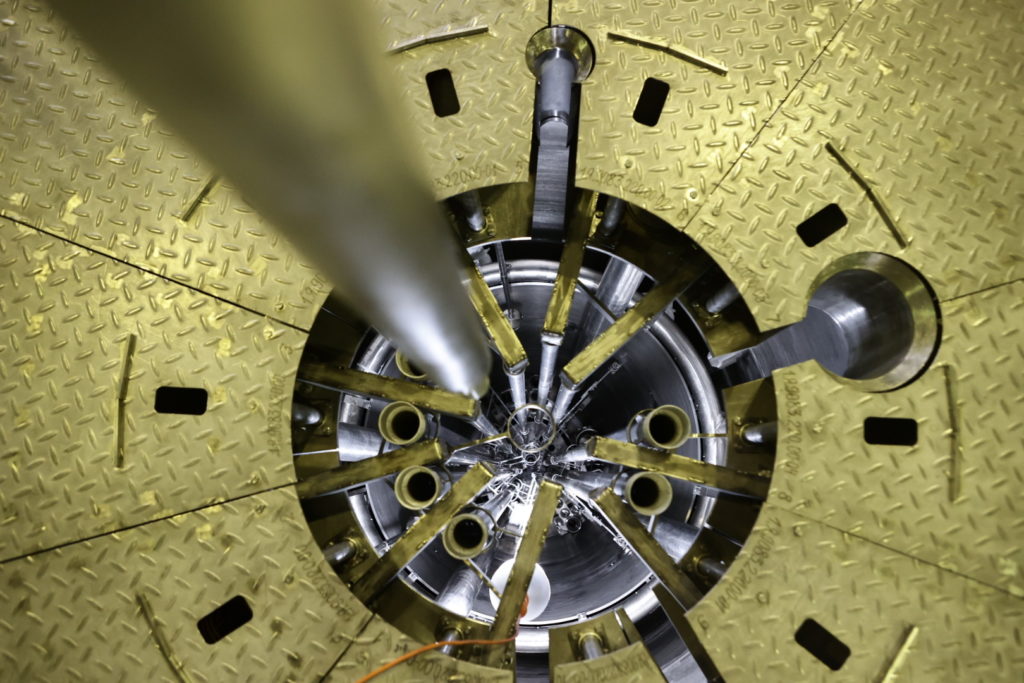
He also recalled that the cyclotron, which is another part of the NRTC, had been put in operation not long before. The cyclotron unit will produce radiopharmaceuticals sufficient to conduct over 500 diagnostic studies per year. In the future, all three Bolivian nuclear medicine centers will be fully supplied with locally-produced radiopharmaceuticals.
The next step will be to expand the range of radiopharmaceuticals and export them to neighboring countries. “It’s great to see that the project is already benefiting Bolivian citizens, and we will continue working on it. It should be completed in its entirety in 2025,” Kirill Komarov emphasized.
Apart from the research reactor, the NRTC includes a laboratory, a cyclotron that produces radiopharmaceuticals for clinical studies, and a multipurpose irradiation facility capable of processing up to 70 tons of produce per day to improve food safety and shelf life.
“This is an important project for us, and our partners around the world are closely watching it. We officially handed over the cyclotron to the customer earlier this year, and now this radiopharmaceutical production facility built by Russian engineers, the first in Bolivia and the most advanced in Latin America, is already in operation. The multipurpose irradiation center is also ready to be handed over to the customer,” said Evgeny Pakermanov.
There are more Rosatom’s partners among other Latin American countries. This March, the Russian nuclear corporation won a contract with the Brazilian company Eletronuclear to supply 100 kg of lithium‑7 hydroxide for two Angra NPP reactors.
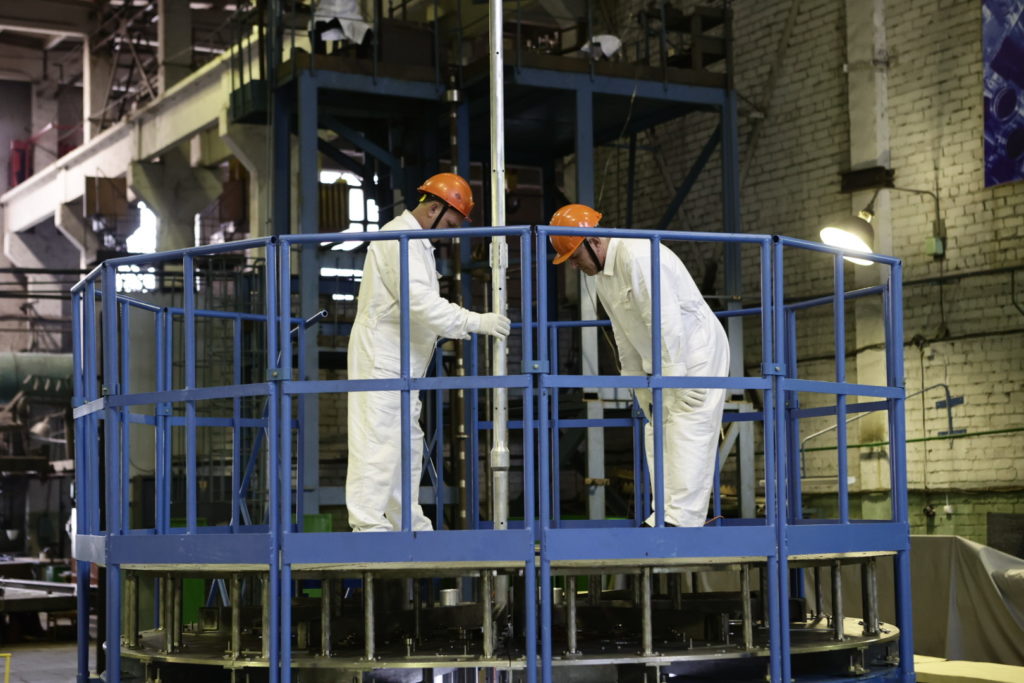
In early May, Rosatom took part in the largest Brazilian nuclear industry event, Nuclear Trade and Technology Exchange (NT2E), organized by the Brazilian Association for the Development of Nuclear Activities (ABDAN). The opening ceremony was attended by Minister of Mines and Energy Alexandre Silveira, Minister of Science, Technology and Innovation Luciana Santos, and IAEA Director General Rafael Grossi. Over 2,500 people visited NT2E and more than 130 delegates participated in panel discussions. Among the topics discussed at NT2E were the role of nuclear power in sustainable development, energy planning, small modular reactors, uranium mining, nuclear medicine, and development of supply chains for the Brazilian nuclear industry.
Rosatom also took part in the exhibition and conference. Speaking at the panel discussion on the role of nuclear power in green energy investments, Kirill Komarov, Rosatom’s First Deputy Director General for Corporate Development and International Business, said: “We see today that nuclear power has become more attractive for investors. A good example is Rosatom’s current project to build four floating nuclear power plants in Russia. The contract is concluded for the period of 40 years. The customer will have prices fixed for the next four decades, and we as manufacturers have an opportunity of strategic economic planning for half a century ahead.”
Rosatom reached new agreements with Brazilian companies on the margins of NT2E.
“We continue to develop cooperation in the supply of uranium products with the Brazilian company INB. Last year, we won an international bid and signed a contract to provide uranium enrichment services. Another contract has been signed today in Rio de Janeiro, this time for the supply of natural uranium,” Kirill Komarov said at the signing ceremony.


